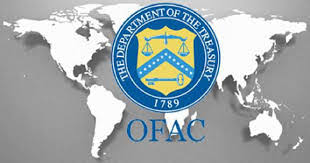OFAC Releases Guidance on Sanctions Compliance During the Pandemic

Elizabeth Slim, Senior Consultant at The Volkov Law Group joins us for an important posting on OFAC sanctions compliance as a result of the pandemic. Elizabeth can be reached at eslim@volkovlaw.com.
It was only a matter of time before regulators and law enforcement recognized the impact that the pandemic has had on our country and our economy – The Office of Foreign Assets Control (“OFAC”) issued guidance acknowledging that the COVID-19 crisis may impact the ability of companies to ensure compliance with OFAC sanctions. Specifically, OFAC stated that it “understands that the COVID-19 pandemic can cause technical and resource challenges for organizations.” OFAC provided an important statement:

[I]f a business facing technical and resource challenges caused by the COVID-19 pandemic chooses, as part of its risk-based approach to sanctions compliance, to account for such challenges by temporarily reallocating sanctions compliance resources consistent with that approach, OFAC will evaluate this as a factor in determining the appropriate administrative response to an apparent violation that occurs during this period. OFAC specifically stated:
[I]f a business facing technical and resource challenges caused by the COVID-19 pandemic chooses, as part of its risk-based approach to sanctions compliance, to account for such challenges by temporarily reallocating sanctions compliance resources consistent with that approach, OFAC will evaluate this as a factor in determining the appropriate administrative response to an apparent violation that occurs during this period.
In practical terms, OFAC has recognized that a company’s resources may be stretched thin due to employees who are out ill, working remotely or furloughed. Resources may be reallocated, thus diminishing the effectiveness of your company’s sanctions compliance program.
Organizations are facing real and serious disruptions resulting in reduced compliance staff resources — as a result, companies may not be able to properly screen customers/clients, beneficial owners and third parties before conducting new business transactions in a timely manner. A worst-case scenario may be a subject not screened who is listed on the Specially Designated Nationals (SDN) List and a transaction with the SDN may result in an OFAC violation for failure to screen, block the transaction and to report the incident to OFAC in a timely manner.

Hopefully, many businesses and financial institutions are prioritizing their compliance obligations to mitigate their risk exposures. This requires companies to leverage their compliance responsibilities by relying on business staff to assist in basic compliance functions.
To begin with, companies should have a well-documented sanctions compliance program with proper policy and procedures in place, so your organization understands its roles and responsibilities to comply with the regulations. In the face of this pandemic crisis, a Business Continuity Plan (“BCP”) which defines all risks that may affect a company’s operations during a potential threat or crisis has a developed plan to allow the company to recover critical business functions. OFAC sanctions screening should be listed as a critical function in the BCP due to the regulatory risk and financial impact to your company.
Separately, OFAC encouraged persons, including financial institutions and other businesses, affected by the COVID-19 global pandemic to contact OFAC as soon as practicable if the organization believes it may experience delays in its ability to meet deadlines associated with regulatory requirements administered by OFAC. This includes requirements related to filing blocking and reject reports within ten business days as required by 31 CFR Sections 501.603 and 501.604, responses to administrative subpoenas issued pursuant to Section 501.602, reports required by general or specific licenses, or any other required reports or submissions.
OFAC further explained that if a company has built a risk-based sanctions program that aligns with OFAC’s “A Framework for OFAC Compliance Commitments” (OFAC Sanctions Compliance Guidance HERE) published on May 2, 2019, OFAC will consider the lack of resources as a result of the COVID-19 pandemic crisis to determine the appropriate administrative action or fine.

Unfortunately, OFAC will not excuse the violation during this time of crisis but will factor the conditions on a case-by-case basis. There may be some form of leniency if your sanctions program promotes a culture of compliance throughout the organization, is well documented, risk-based and how effective your program is.
If you have any questions regarding your sanction’s compliance program, The Volkov Law Group is here to assist you.















